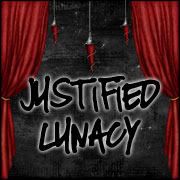I'll be teaching a whole unit on a novel and today the class picked up the novel, Tomorrow when the War Began (lots of moans and groans and 'Miss, I don't like to read'). It's truly an Australian novel, with language and everything... the class had to collect a dictionary of Australian slang words. Here's a trailer for the movie that's coming out in September.
This actually made me think (*gasp*), would people from other places find a novel with local slang harder to read, or would they be able to fit a definition to the word based on the sentence? I've actually had problems in previous novels, especially since most of my readers are from England or America, where they didn't understand what I was trying to convey.
The hardest time is when that single word changes meaning in different languages. One example was Jumper. This:
Changed to:
It doesn't seem like much, but the person reviewing the chapter couldn't understand why my MC was grabbing jumper just in case it was cold.
Slang, just like dialects in dialogue, can sometimes hinder a person's understanding of the story (seriously, there were even some words/phrases that I had never heard of and I'm Australian), but it can also used to convey the setting. So, how do you choose what slang to use in an MS?
- Don't use FAD words
Words that are current at the moment might become outdated before your novel is even published. Such terms as Cool, Bad, Slamming, Rad, etc could mean something totally different so your story will feel outdated, or worse, your readers won't be able to understand it. - Use if adds to setting/era
You can't deny it, slang terms makes up a culture and such terms are necessary to indicate the time or place that the novel is set (this is especially important if you're writing a historical novel since they didn't speak the same way we do now). - Make sure readers can get definition from within the sentence
If a reader has to spend a long time trying to decode the slang that's in a story, then the reader won't want to continue reading (I know I won't... I barely like trying to decipher long-winded fantasy names at the best of times). Simple and sweet is the best way to utilise slang terms, don't go for the hard sayings that no one has ever heard of. - If it helps, it helps
Above all, don't try to eliminate all culture and background. The way we all speak is based on the words we've grown up with. If you try to eliminate all slang words, then you're eliminating a lot of personality from the novel. Just think about what you're saying before you put it in.
And on a final note, here's a little quick for you. Can you answer these questions on Australian slang?
- Get your "thongs" on
- Rack off
- I feel safe with the "bum bag"


























9 comments:
Its funny. I'm the only american in our critics group. Everyone else is from different parts of England so I often stumble on the way they form dialogue or different words. Same goes for them with my manuscript. Especially my recent one which has a lot of americna teen slang.
Ha ha! My husband lived in Australia for a couple of years, and we use Fair Dinkim all the time. And chuckers. Do you know what those are? Freak, I hope so.
And I agree about slang. I like to make up my own or take a word and make it mean something entirely my own for my own world.
@Query Girl. It's so easy to stumble over foreign words, especially if they mean something different in the 2 countries.
@Elana. Making up slang sounds like fun, and you never have to worry about it being outdated or people not knowing what it means.
Okay, now I want to read (and watch) Tomorrow When the War Began... that trailer got me!
I do know jumper as sweater, thongs as flipflops, rubbers as erasers, and a few others... I love Australian/NZ slang (after 4 days in Australia and 5 in NZ, I'm a little bit fascinated by both countries).
I have a friend from England who recently told me she went shopping and bought a jumper. I was surprised when she showed me a picture of what she bought. Not at all what I had imagined!
And I know what a bum bag is. I won't translate it to what we call it in America, because the word we use is considered offensive in your country, I believe. Haha! Something I also learned just last week.
Words don't always mean the same in other countries.
Great post! Slang is tricky! I think too much can make your work sound dated or difficult to understand, but you need a little to make your dialogue feel authentic. Definitely a fine line...
Good thought provoking post. You have your work cut out for you. I wish you well teaching the novel.
such a great post and such important points! i think it's especially important to remember not to date ourselves with our writing -- especially since it takes at least a year for the book to even get published!
thanks a ton for sharing -- i'm wishing you luck with all you do!!
I've stopped by to leave a quick comment. Wishing you the best of luck! Your post is wonderful! Visit our www.proof-reading.services and browse around!
Post a Comment